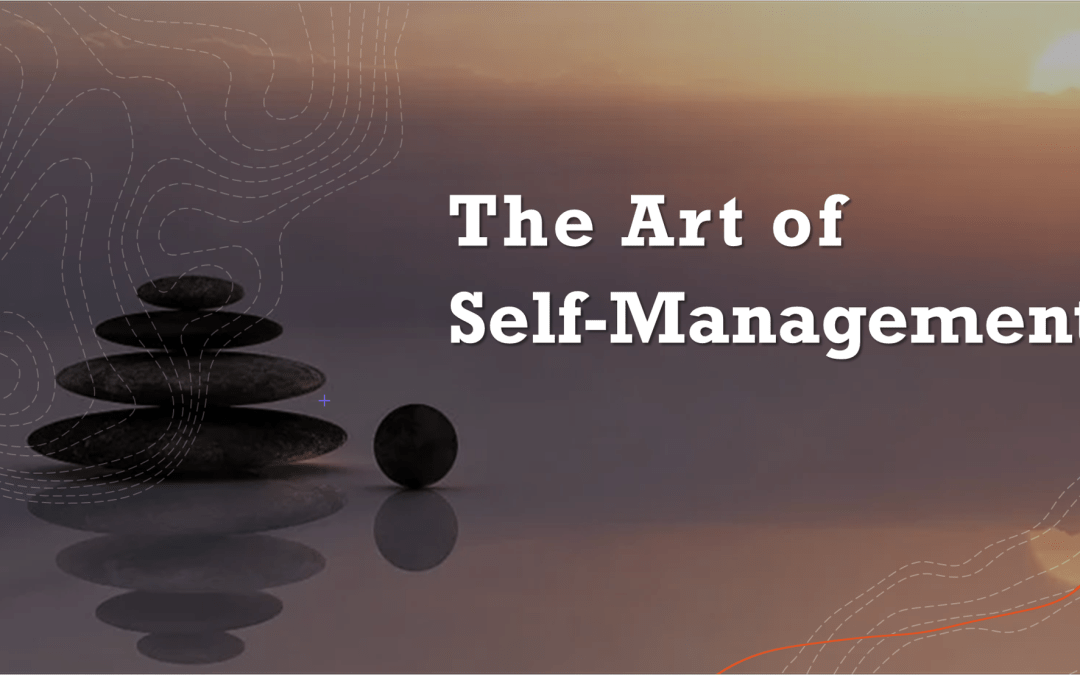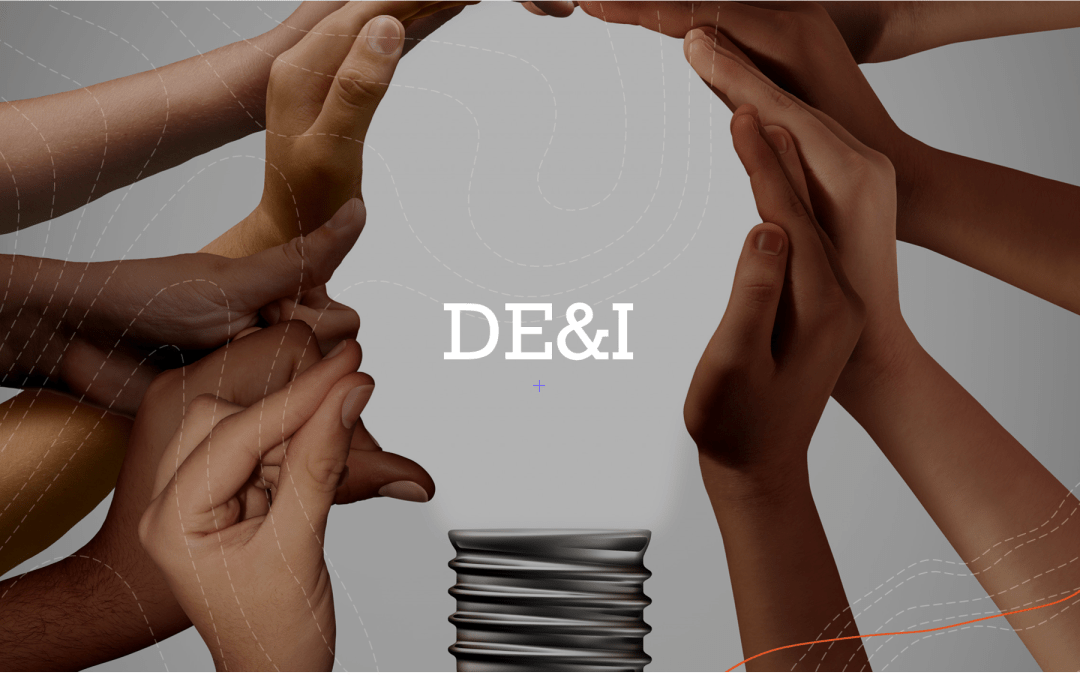
Navigating the Digital Age through the Art of Self-Management
In the dynamic embrace of the modern age, where change is the only constant, the wisdom of Lao Tsu reverberates with timeless significance:
“Mastering others is strength; mastering oneself is true power.”
Now more than ever, as we navigate a landscape defined by digital acceleration and unending possibilities, the mastery of self-takes on a role of unparalleled importance. Self-management transcends the realm of personal development clichés, emerging as a pivotal skill that empowers individuals to thrive amidst the complexities of the digital landscape.
This article unravels the intricacies of self-management, exploring its transformative impact in the face of digital challenges, the nuances of remote work, the necessity of continuous learning, and the surge of entrepreneurial pursuits. Join us as we decipher the threads of true power and uncover the relevance of Lao Tsu’s ancient wisdom in the vibrant context of our digital age.
The Essence of Self-Management: Defining True Empowerment
In its purest form, self-management is the compass that guides individuals through the intricate maze of modern life. At its core, it is the deliberate and conscious effort to regulate one’s behavior, emotions, and actions. A synthesis of discipline, awareness, and adaptability, self-management comprises the mastery of time, stress, and priorities.
In contrast to traditional notions of control exerted by external forces, self-management represents a paradigm shift—a journey from reliance on external structures to the cultivation of internal empowerment. It involves taking the reins on one’s life, steering it with purpose, and making decisions aligned with personal goals. In this transformative process, individuals cease to be passive subjects reacting to external stimuli; instead, they become active architects of their destiny.
The shift from external control to internal empowerment is not merely a change in approach; it is a profound metamorphosis. It signifies moving beyond the constraints imposed by external circumstances and tapping into the wellspring of personal agency. As individuals embrace the art of self-management, they embark on a journey toward true empowerment—an empowerment that emanates not from controlling others but from mastering oneself.
Mastering Self-Management amidst Digital Dynamics and Remote Realities
In the era of digital deluge, where information competes for attention, navigating the landscape demands an artful blend of time management and focus. Challenges, from information overload to pervasive distractions, require discernment to extract insights amidst a sea of content. As individuals master tuning out digital noise, they reclaim control, fostering productivity and engagement.
Simultaneously, the shift to remote work spotlights self-management as pivotal. Remote success demands discipline and autonomy beyond office confines. Self-management transforms living spaces into productive environments, necessitating personalized schedules and focused task prioritization. Establishing dedicated workspaces, mirroring traditional routines, and utilizing technology strategically become crucial strategies. Effective communication compensates for physical distance, fostering connection.
This is how self-management emerges as the guiding compass through the challenges of both the digital deluge and remote work dynamics in the modern workplace. Honing these skills allows individuals not only to adapt but to also thrive in the era of digital autonomy and remote flexibility.
How to Cultivate Comprehensive Self-Management Skills
Self-management skills, encompassing aspects from time management to effective communication, form the bedrock of personal and professional success. To elevate these skills, an individual must adopt targeted strategies:
- Prioritize tasks and set realistic goals for efficient time management.
- Develop organizational systems and maintain a clutter-free workspace.
- Establish SMART goals with detailed action plans.
In the intricate tapestry of self-management, adept stress management is a vital thread woven into the fabric of overall well-being. Stress, a ubiquitous aspect of life, demands intentional strategies for effective coping. Incorporating mindfulness practices, such as meditation and deep-breathing exercises, into your daily routine can foster a heightened sense of awareness and emotional balance. Engaging in regular physical exercise not only contributes to physical health but also acts as a powerful stress reliever by releasing endorphins. Moreover, cultivating a healthy lifestyle that includes sufficient sleep and balanced nutrition forms a robust foundation for resilience against stressors. Recognizing personal stress triggers and developing coping mechanisms, whether through relaxation techniques or seeking social support, enhances emotional well-being.
It is vital to embrace adaptability by cultivating a continuous learning mindset:
- Make informed decisions based on thorough research and analysis.
- Foster self-discipline with routines and accountability partners.
- Proactively seek opportunities, reflecting on experiences through journaling and seeking diverse feedback.
- Hone effective communication and emotional regulation, developing resilience through learning from setbacks and maintaining a positive mindset.
- Practice clear communication, upholding boundaries, and stimulating critical thinking.
- Prioritize continuous learning through professional development and regular reading.
Integrating such strategies systematically enhances self-management skills, laying the groundwork for holistic personal and professional triumph.
Elevating Team Dynamics: The Strategic Value of Well Self-Managed Individuals in Modern Organizations
Companies actively seek to integrate individuals with strong self-management skills into their teams due to the multifaceted advantages they bring. These individuals, known for their initiative and heightened productivity, play a pivotal role in elevating team efficiency and reducing the need for constant supervision. Beyond their ability to adapt to change and problem-solving skills, they contribute to the team’s agility and foster an environment conducive to innovation. Their effective collaboration skills and positive influence on company culture not only enhance employee satisfaction but also contribute to improved retention rates.
With a knack for resource optimization and an entrepreneurial spirit, self-managed individuals positively affect client relationships and influence stakeholder perceptions, positioning the company for sustained success in today’s dynamic business landscape. In essence, these individuals act as catalysts, driving not only their own success but significantly elevating the overall effectiveness and adaptability of the team and the organization, aligning seamlessly with the demands of the modern workplace.
Charting Paths of Self-Mastery – Are We Ready for the Future?
Our journey into the essence of self-management has unveiled it as a transformative force, guiding individuals through the complexities of modern life. Signifying a profound shift from external control to internal empowerment, it beckons a journey where individuals become architects of their destinies. As we master self-management amidst digital dynamics, remote realities, and comprehensive skill cultivation, we embrace true empowerment.
The strategic value of well self-managed individuals in modern organizations becomes evident, as they not only drive personal success but also elevate team dynamics and contribute to organizational resilience. In essence, the mastery of oneself emerges not only as a personal triumph but as a compass to navigating the future. So, as we traverse these evolving paths of self-mastery, how can we ensure we are ready for the challenges and opportunities that the future holds?
Let's Work Together!
Intervu.ai is a software that leverages these technologies to make the recruitment process more efficient and effective.




